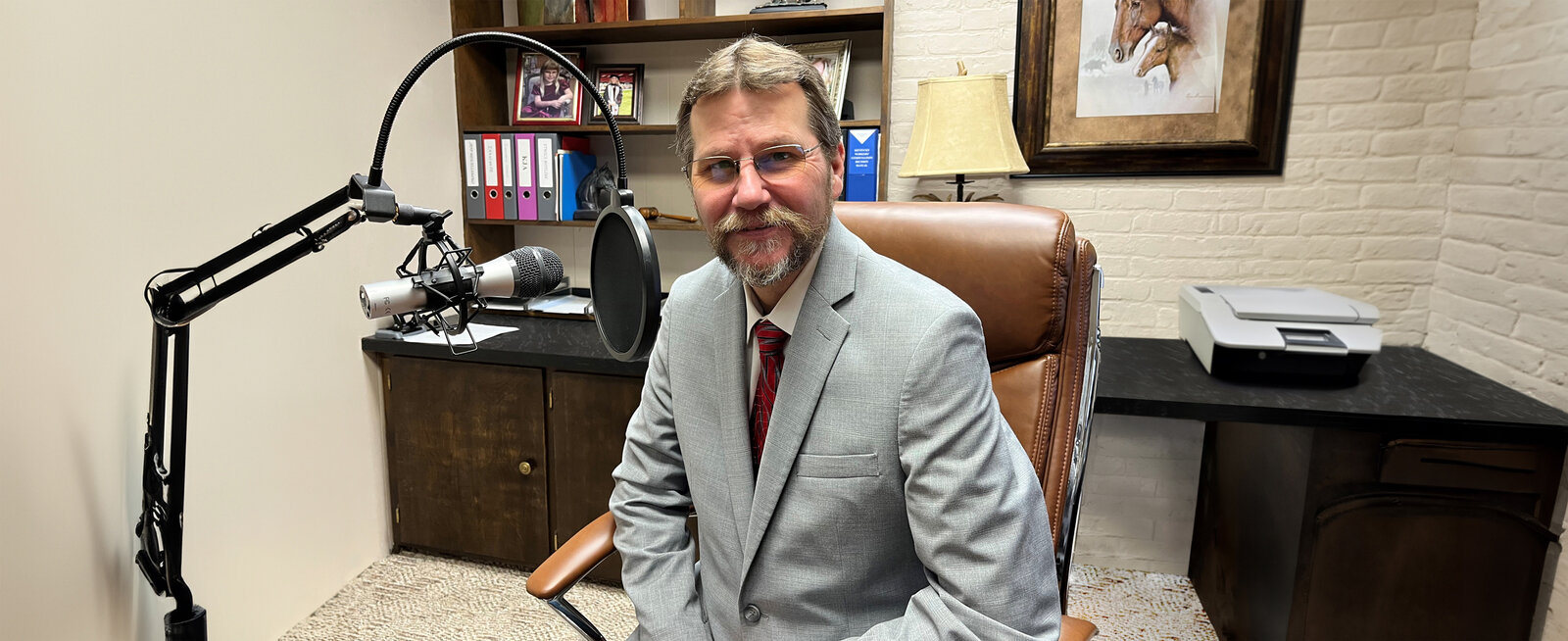Episode 88: Calloway County workers’ comp attorney Jeff Roberts discusses the process for workers’ compensation appeals. In his more than 30 years of practice, Jeff as taken several cases all the way to the Kentucky Supreme Court, on appeal. There are a number of types of appeals, which he’ll explain in today’s episode.

Medical Decision Appeals
In workers’ compensation cases, this is often the first type of appeal that may need to be filed. Kentucky workers’ comp provides generous medical benefits for injured workers. The insurance company is required to pay all reasonable and necessary expenses for treatments related to the workplace injury. However, the insurance company can question whether that treatment meets the standard, per the established guidelines.
If the treatment has been denied, even though it was ordered by the treating doctor, the request for treatment can be submitted for utilization review. This review of the medical records will be performed by another doctor, although he/she might not actually specialize in that specific area of medicine. Jeff explains that the company handling the utilization process for the insurance company is actually paid by the insurance company. This could lead to a less than objective outcome, at times.
If the utilization review determines that the requested treatment should be denied, this opens the door for the first type of workers’ compensation appeals.
The injured worker and his/her treating doctor have the right to appeal the decision from utilization review. It’s possible to appeal on the grounds that the doctor who reviewed the case didn’t have the background to properly review the case. For instance, if your orthopedic specialist recommends a surgery, but the case was reviewed by an internist, this can be appealed.
The appeal would then be reviewed by a specialist who does focus in the same area of medicine as the treating doctor. This is referred to as a request for reconsideration. At the end of the second review made, the treatment will either be approved or denied.
The injured worker and his/her attorney will be able to appeal the determination to the judge, so long as the case itself has not been decided. It’s the responsibility of the injured worker and the attorney to file this appeal.
However, if the dispute arises after the workers’ compensation case has been settled, it’s the insurance company’s responsibility to appeal the decision. Jeff explains that Kentucky’s workers’ compensation benefits can last 15 year, and in some cases for a lifetime. The insurance company has a specific window of time to appeal the treatment. If they don’t file by the deadline, the treatment will usually be approved fairly quickly. It would be covered by workers’ compensation insurance.
Appealing the Administrative Law Judge’s Decision
While the initial claim for workers’ comp benefits is active, a decision by the judge may be eligible for a workers’ compensation appeal. For instance, if there’s a decision the injury wasn’t work-related or the severity of the injury doesn’t merit a higher level of benefits. These types of decisions can be appealed.
Either side can appeal the judge’s decision. This could happen if the insurance company feels the benefits being awarded weren’t justified by the severity of the injury.
These types of workers’ compensation appeals are made to the Workers’ Compensation Board. This Board is made up of 3 administrative law judges, appointed by the governor and confirmed by the senate. This group will look specifically at whether the original judge followed the law in making his/her decision. It’s also possible the judge may have misunderstood the facts, as supported by the evidence. In essence, the Board is looking for judicial error. No new evidence will be submitted to the Board. This appeal is generally based on legal briefs written by the attorneys for each side. Oral arguments are rare, but they can happen.
The Worker’s Compensation Board can refuse to allow the case to be appealed, at this time, because the entire claim must be decided before they can get involved. In other words, the judge handling the initial workers’ compensation claim has to make a final ruling. At that point, the Board can allow the appeal to proceed.
Appealing to the Kentucky Court of Appeals
Once the Workers’ Compensation Board has issued its ruling, either side can appeal to the Kentucky Court of Appeals. This court doesn’t only hear workers’ comp cases. It hears appeals of basically any type of case. These judges are elected.
Cases, at this level, are heard by a 3-judge panel. The Court of Appeals is looking to see if the Workers’ Compensation Board made an error in its decision. Again, no new evidence is submitted. The review and ruling is based on the existing record and legal briefs from the attorneys. It is possible the court will ask for oral arguments on specific matters.
The Court of Appeals also has the discretion to determine if the decision was legally correct, assuming there has not be legal issue decided by the Kentucky Supreme Court, in a published opinion. For instance, if there’s a question of whether a ruling was constitutional, the Court of Appeals can make that determination. That type of issue would not fall under the jurisdiction of the Workers’ Compensation Board.
Do Appeals Impact Attorney Fees?
In Kentucky, most workers’ compensation attorneys operate on a contingency fee basis. Their fees are outlined in their contract and limited by Kentucky law. When a case goes up on appeal, Jeff doesn’t get paid more for the additional work.
However, if the appeal is successful and results in a larger settlement, the percentage established in the contingency fee agreement remains the same, but now “the bucket” is bigger. From this perspective, the attorney does get paid more, but only because the settlement was a larger number.
The attorney working for the insurance company works on an hourly rate. So, if the case goes up on appeal, they would be able to bill the insurance company addition fees, based on the increase in hours required to settle the case. Nonetheless, the attorney fees for the injured worker aren’t affected by this.
Appealing to the Kentucky Supreme Court
Jeff has argued before the Kentucky Supreme Court several times, for workers’ comp cases and other types of case. He’s developed a successful track record there.
Jeff explains that a non-workers’ comp case is usually handled by the circuit court. The appeal goes to the Court of Appeals. From there, either side can file a motion for discretionary review. This asks the Kentucky Supreme Court to accept the case. The Court can decide either to hear it or not to hear that case.
In workers’ comp cases, the process is different. The Kentucky constitution allows you to have at least one appeal from a lower court. The original administrative law judge and the Workers’ Comp Board are not considered courts. Therefore, the first true court decision is made by the Kentucky Court of Appeals. So, according to our state constitution, you have the right to appeal the decision of that court. That’s why the Kentucky Supreme Court must hear your appeal. Unlike non-workers’ comp cases, it does not have the discretion to refuse to hear the case.
The state Supreme Court is looking for issues related to constitutionality or to make a ruling if the law hasn’t established how a statute should be interpreted for the first time.
Other attorneys have invited Jeff to get involved with a particular case going to the Supreme Court. He’s also been asked by organizations to draft “friend of the court” briefs (also referred to as amicus curiae briefs) which are submitted to the Kentucky Supreme Court.
What Do Other Clients Think About Jeff?
We always encourage listeners to read the Google Reviews Jeff Roberts has received from many of his clients. A 5-Star rating and the comments are earned recognition and demonstrate Jeff’s commitment to his clients. As a solo attorney, he has more Google Reviews than some firms with multiple attorneys. Jeff shares the credit with his staff at the Roberts Law Office. Successfully representing injured clients is a team effort. It’s why Jeff likes to say his firm offers small town service with big city results.
Jeff Roberts Represents Injured Clients Throughout Kentucky
With offices located in Calloway County (Murray) and now in Christian County (Hopkinsville), Jeff has a history of representing personal injury clients, workers’ compensation clients and social security disability clients across the state. He’s represented clients from Paducah, Bowling Green, Louisville, Covington, Whitesville and many other Kentucky locations. He’s not just a Western Kentucky injury attorney.
We hope you found this episode insightful and helpful. Thank you for listening!
Is It Time to Speak with an Attorney about Your Workers’ Compensation Claim?
The office phone number is (270) 753-0053 or toll free at 800-844-5108. For more information, visit www.JeffRobertsLaw.com. This podcast is meant to provide information and is not legal advice. Jeff’s principal office is located at 509 Main Street, Murray, Kentucky. Co-host Jim Ray is a non-attorney spokesperson. This is an advertisement.





